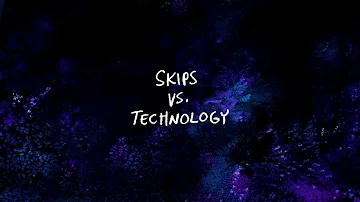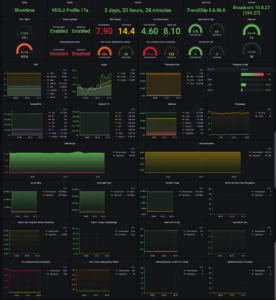Waste management is a important aspect of present day dwelling. As our towns enlarge and populations grow, the challenge of putting off waste efficaciously becomes extra pressing. With an ever-growing quantity of trash generated every day, how we control it has developed drastically over the years.
Traditionally, groups depended on skips and landfills to handle their rubbish. However, with advancements in era, new solutions have emerged that promise greater performance and sustainability.
Are traditional methods still relevant? Or do high-tech alternatives offer a brighter future for waste management?
Join us as we dive deep into the sector of skips as opposed to era. We’ll explore how those strategies stack up against each other in phrases of effectiveness, environmental impact, cost-efficiency, and lengthy-term viability. The landscape of waste disposal is converting unexpectedly—allow’s discover collectively which aspect holds the important thing to a purifier planet!
The Traditional Approach: Garbage Collection and Landfills
The traditional technique to waste management often revolves around rubbish series and using landfills. This technique has been a staple in communities for many years.
Garbage collection includes scheduled pickups where refuse is collected from houses and agencies. Trucks transport this waste to certain sites, regularly leading to overflowing landfills over the years.
Landfills are generally huge areas wherein trash is dumped and buried. While they offer a truthful solution to disposal, they come with big drawbacks. Decomposition releases methane, a strong greenhouse gas that contributes to climate alternate.
Moreover, landfills devour valuable land and might pose risks of groundwater infection if now not controlled nicely. The public notion of those websites tends to be terrible due to their environmental effect and scent troubles.
Despite its simplicity, depending solely on rubbish series and landfills might not be sustainable in our an increasing number of eco-aware world.
Advancements in Technology: Recycling, Composting, and Waste-to-Energy
The landscape of waste management has transformed remarkably with technology. Recycling approaches have end up extra state-of-the-art, taking into consideration higher rates of fabric restoration. Advanced sorting systems make use of AI and device gaining knowledge of to separate recyclables effectively, minimizing human blunders.
Composting additionally blessings from innovation. Automated composters can boost up decomposition via managed environments, turning natural waste into precious soil amendments inside weeks as opposed to months.
Waste-to-strength technologies have emerged as game changers. Facilities convert non-recyclable substances into electricity via combustion or anaerobic digestion. This no longer best reduces landfill use however generates electricity and heat, providing an opportunity electricity source.
These advancements reflect a shift towards sustainability in dealing with waste. By harnessing era, communities can significantly reduce their ecological footprint while selling accountable consumption conduct amongst citizens.
Pros and Cons of Skips and Technology-Based Solutions
Skips offer a straightforward solution for waste management. They are convenient, allowing users to dispose of large volumes of rubbish quickly. Their physical presence makes it easy to collect and transport various types of waste.
However, skips come with drawbacks. They can contribute to landfill overflow if materials aren’t sorted properly. Moreover, they often require permits for placement, which adds complexity to the process.
On the other hand, technology-based solutions like recycling facilities or composting centers promote sustainability. These methods reduce landfill contributions by processing waste into reusable materials or rich soil amendments.
Yet, these technologies also have limitations. Initial setup costs can be high and operational complexities may deter smaller municipalities from adopting them effectively. Balancing convenience with environmental responsibility remains a challenge in choosing between skips and modern tech solutions.
Environmental Impact of Each Method
The environmental impact of waste management methods varies significantly between traditional approaches and modern solutions. When relying on skips, the waste frequently finally ends up in landfills. This can lead to soil and groundwater contamination because of leachate.
Conversely, technology-driven methods like recycling and composting goal to minimize landfill use. These approaches no longer handiest reduce the extent of waste however additionally preserve herbal sources by means of repurposing materials.
Waste-to-electricity centers provide some other avenue for sustainable disposal. By changing non-recyclable waste into strength, they assist lower reliance on fossil fuels while producing strength.
However, each method has its drawbacks. Landfill sites produce methane fuel, a effective greenhouse gasoline contributing to weather change.
Meanwhile, advanced technologies may require significant energy inputs during operation.
Understanding these impacts is crucial for making informed choices about our waste management strategies.
Cost Comparison
When considering skips versus technology in waste management, costs can vary significantly. Traditional skip hire typically involves a flat fee for collection and disposal. This cost may rise based on the size of the skip you require or additional charges for specialized waste types.
On the other hand, modern methods like recycling facilities often have operational expenses tied to processing materials. While initial investments in technology can be high, such as composting systems or waste-to-energy plants, they often lead to long-term savings by reducing landfill fees.
Variable factors also include labor costs associated with each method. Skips usually require manual loading, whereas technologically advanced solutions may automate portions of the process.
Understanding these nuances helps individuals and organizations make informed financial decisions about their waste management strategies without overlooking environmental benefits that might justify higher upfront costs.
Case Studies: Cities that Have Successfully Implemented Modern Waste Management Solutions
Several cities worldwide have embraced modern waste management solutions with remarkable success. For instance, San Francisco has adopted a zero-waste goal, achieving an impressive diversion rate of over 80%. Its extensive recycling and composting programs empower residents to participate actively in waste reduction.
In Sweden, the city of Malmö stands out for its innovative waste-to-energy plants. These facilities convert landfill-bound materials into energy, significantly reducing environmental impact while providing electricity and heating for thousands of homes.
Another example is Ljubljana in Slovenia. This city became the first capital in Europe to adopt a comprehensive zero-waste strategy. Through public awareness campaigns and efficient collection systems, it reduced waste sent to landfills by more than half within just a few years.
These case studies highlight how progressive strategies can transform urban landscapes while promoting sustainability and community involvement.
Criticisms and Challenges Faced by Skips and Technology-Based Solutions
Skips have long been a staple in waste management, but they face significant criticisms. One major issue is their limited capacity for recycling and composting. Often, materials that could be processed sustainably end up in landfills.
On the technology side, innovations like smart bins and automated sorting systems come with challenges too. High initial costs can deter municipalities from adopting these advanced solutions.
Moreover, technology relies heavily on infrastructure. Many regions lack the necessary facilities to support modern waste processing methods effectively.
Public awareness also plays a crucial role. Without proper education about how to use skips or tech-based services efficiently, even the best systems can fall short of their environmental goals.
Both traditional and modern approaches must navigate regulatory hurdles as well. Compliance with local laws can slow down implementation efforts significantly.
Finding the Right Solution
Choosing the right waste management solution isn’t one-size-fits-all. Different types of waste and specific circumstances can significantly influence your decision.
Consider the volume and nature of your waste. If you’re managing construction debris, skips might be more practical. For organic matter, composting technology could be ideal.
Think about local regulations too. Some areas encourage recycling technologies over traditional methods due to environmental policies.
Evaluate budget constraints as well. While advanced solutions may require higher upfront investments, they often lead to long-term savings through reduced landfill fees and increased resource recovery.
Community involvement plays a critical role in success as well. Educating residents on proper disposal can enhance any system’s effectiveness, whether it involves skips or tech-driven approaches.
Balancing efficiency with sustainability will guide you toward the most suitable choice for your needs.
Conclusion
The landscape of waste management is evolving. Traditional methods, like skip bins and landfills, have served communities for years. They offer straightforward solutions for rubbish disposal but come with their own set of drawbacks.
On the other hand, technological advancements are reshaping how we handle waste. From recycling initiatives to composting and innovative waste-to-energy systems, modern approaches promise a more sustainable future. These solutions often reduce landfill dependence and promote resource recovery.
However, each method has its pros and cons that must be weighed carefully. The environmental impact varies significantly between traditional skips and Skips vs. Technology-based alternatives. While skips can sometimes lead to additional environmental burdens through landfill overflow, technology-driven solutions tend to focus on minimizing waste output overall.
Cost plays a crucial role in determining the best approach for any community or individual as well. Traditional skip hire may appear economical upfront but could lead to higher long-term expenses if not managed properly. Technological investments might require initial funding; however, they can yield savings down the line through efficient resource management.
Cities embracing modern strategies show promising results worth emulating—demonstrating that innovation in waste management can lead not only to cleaner streets but also healthier ecosystems.
Yet challenges remain across the board—from logistics issues with skips to public resistance against changes in established practices regarding tech adoption. Each solution brings unique hurdles that necessitate tailored responses.
Finding the right balance requires thoughtful consideration of local needs, available resources, and long-term sustainability goals while navigating this complex terrain of options available today.




